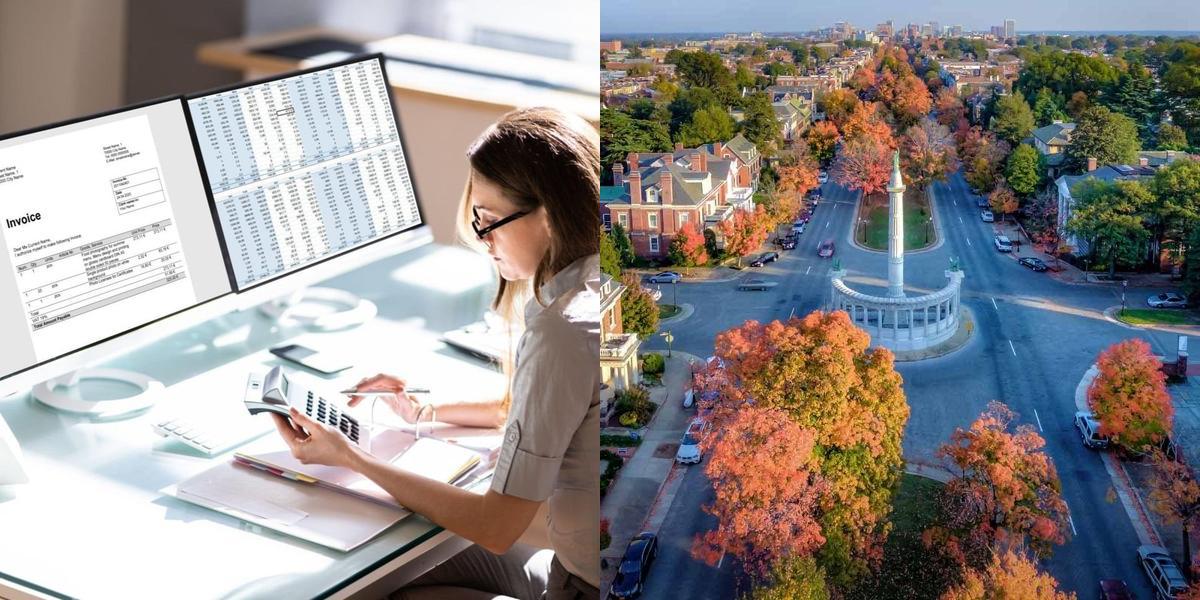How to Become a Medical Biller and Coder in Virginia

As of 2023, over 186,400 people are employed as Medical Records Specialists—a category that includes billers and coders—according to the Bureau of Labor Statistics (BLS). The field is expected to grow 8% through 2032, faster than average, driven by an aging population and increased demand for healthcare services.
If you’re in Virginia and want a career that offers stability, strong salary potential, and room to grow—all without a four-year degree—this guide walks you through everything you need to know to get started!
Key Points
-
A medical biller and coder is a healthcare professional who translates diagnoses and procedures into standardized codes for billing and insurance reimbursement.
-
To become a medical biller and coder in Virginia, complete an accredited training program and earn certification such as CPC or CCA.
-
Most medical and biller programs take 6 to 12 months, depending on whether you choose a certificate, diploma, or associate degree.
-
The average salary in Virginia is $54,640/year, with higher earnings possible for those with certifications or experience.
-
Job growth is projected at 8% by 2032, with over 15,000 new jobs expected nationally (BLS).
Where can I find Medical Biller and Coder classes in Virginia?
If you are interested in pursuing a career as a medical biller and coder in Virginia, Dreambound is the largest platform for students to find and compare vocational training programs. You can find medical biller and coder classes in Virginia on Dreambound's website.
Here are a couple of recommended classes in Virginia:
Dreambound can help you find classes near you, compare different programs, and choose the one that best fits your needs and goals. Start your journey towards becoming a medical biller and coder in Virginia with Dreambound.
Career Paths and Opportunities after Becoming a Medical Biller and Coder
After gaining experience as a Medical Biller and Coder, you have various career paths and opportunities to explore. These options can help you expand your professional horizons and increase your career potential. Here’s what you can consider:
-
Specialty Coder (e.g., orthopedics, dermatology, oncology): Higher pay and expertise in niche areas
-
Auditor or Compliance Specialist: Review coding accuracy and ensure legal compliance
-
Revenue Cycle Manager: Oversee billing departments and reimbursement strategies
-
Health Information Technician: Manage EHR systems and patient data
-
Coding Instructor: Teach at vocational programs or community colleges
-
Consultant: Advise practices on efficiency, compliance, and billing strategy
-
Health Information Manager: Requires further education (Bachelor’s) but leads to high-paying administrative roles
Many roles offer upward mobility, flexibility, and remote work options, especially for experienced professionals with multiple certifications.
Frequently Asked Questions
How much does a medical biller and coder make in Virginia?
According to BLS (May 2023), the average annual wage is $54,640, though salaries can reach $65K+ with experience and certification.
Do I need a degree to become a medical biller and coder?
No, most entry-level positions require only a certificate or diploma from an accredited program—not a college degree.
Do medical billers and coders work from home?
Yes. Many billing and coding roles are fully remote, especially once you gain experience or certification.
Which certification should I get to become a medical biller and coder?
CPC (AAPC), CCA (AHIMA), and CBCS (NHA) are all widely accepted. The best one depends on your job goals and training background.
Final Thoughts
Becoming a certified Medical Biller and Coder opens up a world of opportunities in the healthcare industry. By completing an accredited program, obtaining your certification, and gaining practical experience, you can position yourself for success in this in-demand field. Remember to stay updated with the latest coding guidelines and regulations through continuing education and networking. With dedication, hard work, and a passion for accuracy and compliance, you can build a rewarding career as a Medical Biller and Coder.
Looking for a better fit? These other articles could be more in line with your expectations if this one isn't precisely what you had in mind:

Athena is Co-founder and CEO of Dreambound.




